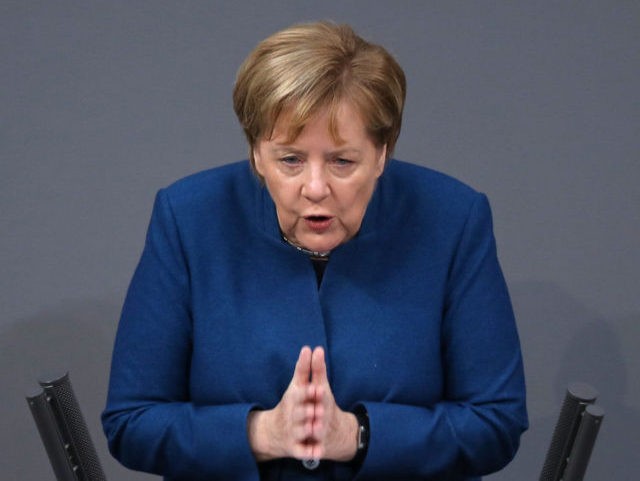Signing the UN migration pact will be “a win-win situation” for Germany, Angela Merkel has said, attacking concern over the controversial agreement as “nationalism in its purest form”.
As fierce debate over the so-called Global Compact for Safe and Orderly Migration continued to split her party, the Chancellor used her first speech since announcing she would not stand for re-election to give an impassioned defence of the document.
“This pact for migration, as well as the pact for refugees, is the right response to…solve global problems internationally and together,” she said during Wednesday’s general debate on the federal budget in the Bundestag.
Claiming the agreement would ensure “reasonable conditions” for migrants of the sort which already exist in Germany, such as access to welfare and healthcare, are put into place across the rest of the world, Merkel argued it would benefit the nation.
“That’s why it is in our national interest that the conditions around the world, for refugees on the one hand and migrants on the other, are improved … Otherwise, of course, people will say you only have a few countries you can go to, and try it and risk their lives,” she told lawmakers in Berlin.
In what was an “unusually passionate address” for the German leader, according to Reuters, Merkel then launched an attack on anyone with reservations about signing the pact with a nod to globalist French president Emmanuel Macron’s recent declaration that “patriotism is the exact opposite of nationalism [because] nationalism is treason”.
Asserting there could be “no compromises”, she said: “There are people who say they can solve everything themselves and don’t have to think about anyone else — that is nationalism in its purest form.
“That is not patriotism, because patriotism is when you include others in German interests and accept win-win situations,” said the Christian Democratic Union (CDU) leader during her speech, in which she also stressed that no part of the agreement would be legally binding.
Other voices in Germany have expressed doubt over assurances that signing the pact would have no effect on inward migration flows or on how the country deals with people seeking asylum, including figures from within Merkel’s own party such as Matthias Herdegen.
The director of the Institute of International Law and Institute for Public Law at Bonn University, Herdegen warned the 32-page document, which requires signatories “commit to eliminate all forms of discrimination” with measures including state promotion of “diversity” and opening up welfare systems to all including illegal immigrants, was worded in a way that meant it occupied “a legal grey area”.
“It gives the impression of [state] liability,” he argued, warning that the agreement would result in raised expectations amongst people wanting to migrate from third world countries — a demographic whose population is set to soar in the coming years, with the population of Africa alone projected to double by 2050 to 2. 5 billion.
A growing list of EU nations including Austria and Poland, as well as countries elsewhere in the world — most recently Australia and Israel — have said would pull out of the pact, which declares migration to be “inevitable, necessary and desirable”.
Leaders from more than 10o countries are due to ratify the treaty in Marrakesh next month during a UN-hosted ‘Migration Week’, which will welcome up to 6,000 participants from intergovernmental organisations as well as “all relevant stakeholders, including civil society, the private sector, academic institutions, parliaments, diaspora communities and migrant organisations”.

COMMENTS
Please let us know if you're having issues with commenting.